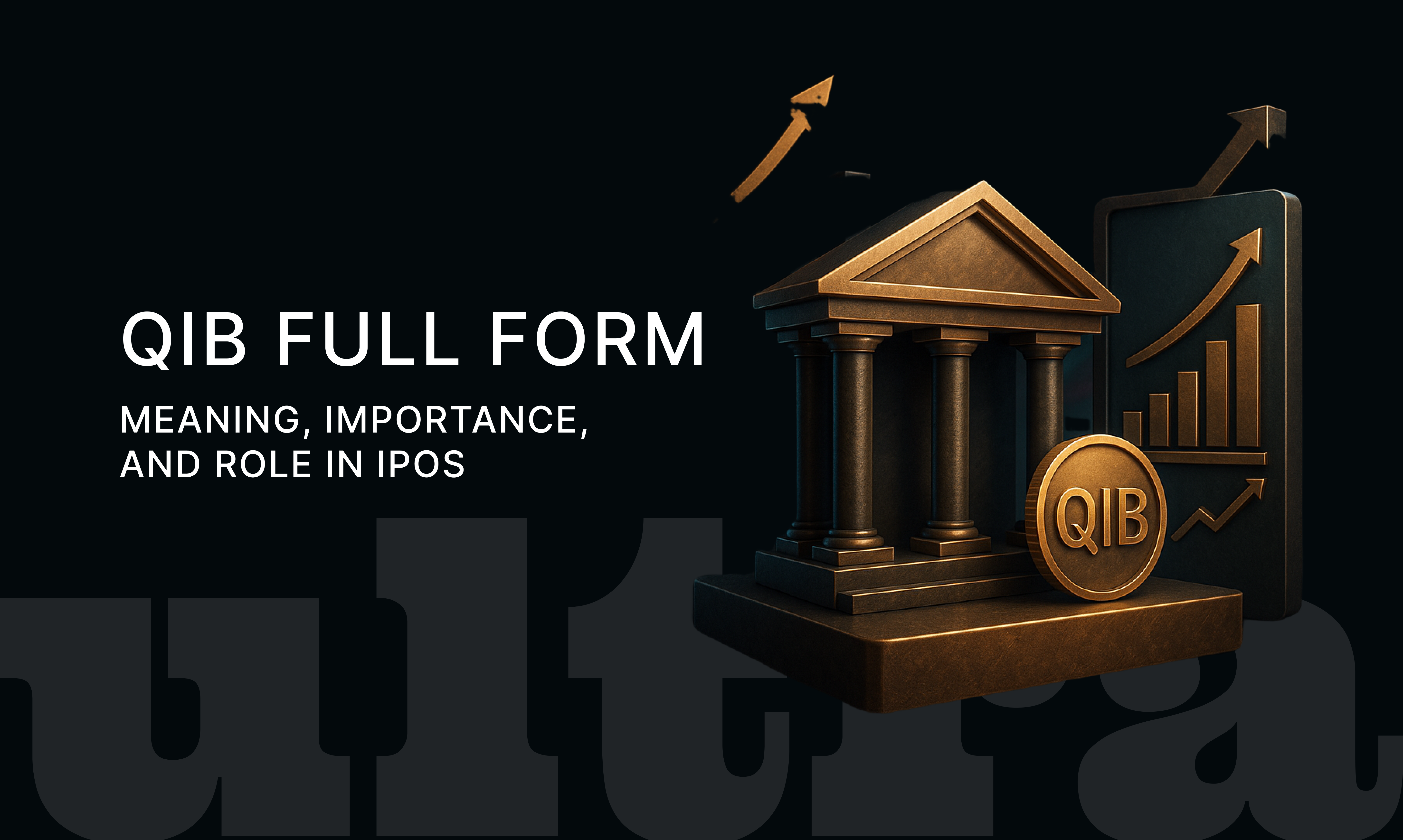QIB Full Form: Meaning, Importance, and Role in IPOs
24 July 2025 · Sachin Gadekar
What is QIB? Full Form, Meaning, and Role in IPO Investment in India

QIB Full Form
QIB full form is Qualified Institutional Buyer.
QIBs are large institutional investors who are considered to have the financial expertise and resources to evaluate and invest in capital markets responsibly.
QIB Meaning
QIBs, or Qualified Institutional Buyers, are entities allowed by SEBI (Securities and Exchange Board of India) to participate in capital markets, primarily to bring stability and credibility to public offerings like IPOs.
In an IPO, QIBs are allotted a significant portion of the shares. Their participation indicates institutional confidence in the issuing company, which helps build trust among retail and non-institutional investors too.
Who Can Be a QIB?
According to SEBI guidelines, the following can qualify as QIBs:
Public financial institutions
Scheduled commercial banks
Mutual funds registered with SEBI
Foreign Portfolio Investors (FPIs)
Insurance companies registered with IRDAI
Provident funds with minimum corpus of ₹25 crores
Pension funds with minimum corpus of ₹25 crores
Alternate Investment Funds (AIFs)
Multilateral and bilateral development financial institutions
State Industrial Development Corporations
These investors have large funds and in-house research capabilities to assess the risks and prospects of companies seeking to raise capital.
QIB in IPO: Why Are QIBs Important?
When a company launches an IPO, SEBI mandates that a portion of the issue must be reserved for QIBs. This ensures that serious, long-term institutional money supports the issue, adding credibility and reducing speculative manipulation.
How Much Is Reserved for QIBs in an IPO?
In a Book-Building IPO: At least 50% of the Net Offer must be reserved for QIBs.
The remaining portion is allocated to Non-Institutional Investors (NIIs) and Retail Individual Investors (RIIs).
The QIB portion cannot be bid at the cut-off price. QIBs need to bid at the price they are willing to pay, which influences the final price discovery of the IPO.
QIB Allotment and Lock-In Period
Generally, there is no lock-in period for QIBs when they receive shares through an IPO. This means they can sell their allotted shares in the secondary market immediately after listing.
However, if QIBs invest through the anchor investor route, there is a lock-in of 30 days for 50% of the shares allotted to them.
How Do QIBs Impact Retail Investors?
QIBs play a big role in boosting investor confidence. Strong participation from big mutual funds, insurance companies, or foreign investors often signals positive sentiment about the IPO.
Many retail investors use QIB subscription numbers as a signal to decide whether to apply for an IPO. High QIB subscription usually indicates healthy demand and expected listing gains.
Difference Between QIBs and Other Investor Categories
| Category | Who They Are | How They Invest | Allotment Quota |
|---|---|---|---|
| QIB | Institutions like mutual funds, banks, insurers | Large volumes, price discovery role | Minimum 50% of IPO |
| NII | High Net-worth Individuals, corporates | Large bids above ₹2 lakh | Minimum 15% of IPO |
| RII | Retail Individuals | Small investors up to ₹2 lakh | Minimum 35% of IPO |
What is the Role of QIB Anchor Investors?
In an IPO, a portion of the QIB reservation is sometimes offered to anchor investors. These are institutional investors who subscribe to the shares before the issue opens for other QIBs and retail investors.
Anchor investments help set the price range and build confidence. It’s mandatory that anchor investors bring in a minimum of ₹10 crores.
Benefits of QIB Participation in IPOs
Stability: Brings stability to the IPO process.
Price Discovery: Helps in fair price discovery.
Investor Confidence: Encourages retail and NII participation.
Market Depth: Adds liquidity and depth to the stock post-listing.
FAQs on QIB Full Form and Role
Q1: What is the full form of QIB in IPO?
QIB stands for Qualified Institutional Buyer.
Q2: Who are examples of QIBs?
Mutual funds, banks, insurance companies, foreign institutional investors, pension funds, and large provident funds are examples of QIBs.
Q3: How much is reserved for QIBs in an IPO?
In book-building IPOs, at least 50% of the issue must be reserved for QIBs.
Q4: What is the meaning of QIB anchor investor?
An anchor investor is a QIB who subscribes to shares before the IPO opens for the general public, bringing confidence to the issue.
Q5: What is the difference between QIB and NII?
QIBs are large institutional investors, while NIIs are high net-worth individuals or companies who invest over ₹2 lakh in IPOs.
Q6: Is there any lock-in period for QIBs?
For normal QIB allotment, there is no lock-in. For anchor investors, 50% of shares have a 30-day lock-in.
Conclusion
Understanding QIB full form, meaning, and its impact in an IPO is crucial for any informed investor. Large institutions backing a company through QIB subscriptions often signals strength, but it should never be the only factor for retail investors.
At Ultra, we help you navigate IPOs, debt instruments, mutual funds, and alternative investments with clarity and data-backed insights.
Stay updated with Ultra’s expert market guides and make smarter investment decisions today.